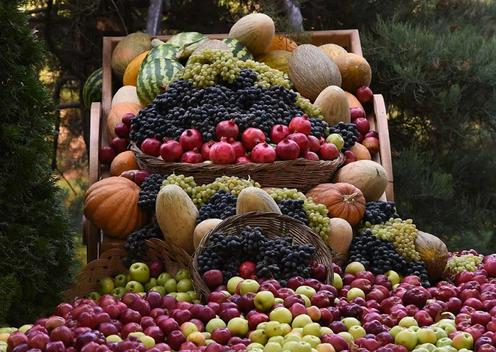Uzbekistan has abolished the practice of setting state-mandated minimum export prices for fruit and vegetable products. The decision aims to liberalize business operations and enhance the competitiveness of local entrepreneurs in foreign markets. The measure is enshrined in a presidential decree signed by President Shavkat Mirziyoyev, which took effect on October 10, according to vaxt.uz.
The outlet notes that the system of state regulation of export prices for fruits and vegetables, introduced last year, had repeatedly faced criticism from business owners and experts. Many viewed it as “a blow to exports,” arguing that such restrictions limited the competitiveness of local producers abroad. Now, state regulation of export prices will remain in place only for three categories of goods: textile products, leather goods and footwear, and electrical equipment.
At the same time, the presidential decree introduces incentives for the agricultural sector. Entrepreneurs engaged in growing legumes will receive partial compensation for harvesting equipment costs and will be able to reduce interest rates on bank loans and leasing transactions through subsidies.
Starting January 1, 2026, entrepreneurs operating greenhouse farms will pay a 1% social tax rate. For those with outstanding tax obligations as of October 1, 2025, the payment deadline has been extended until the end of 2028 without additional interest, penalties, or fines.
For such enterprises, land tax will be calculated at the rates applicable to agricultural land. Greenhouses built on farmland will not need to be reclassified as non-agricultural, allowing entrepreneurs to use the land as collateral for preferential loans. In addition, up to 5% of the total area, but no more than 0.2 hectares, may be allocated for infrastructure such as boiler houses, sorting and packaging facilities, and other related structures.
Greenhouse enterprises will also be eligible for preferential loans to replenish working capital and install dust and gas purification systems. Twenty percent of the costs of installing heat pumps for heating and cooling systems will be covered by the Fund for Energy Efficiency Incentives and Support.
The presidential decree also sets key targets for the sale of fruit, vegetable, and food products. Between 2025 and 2027, exports are expected to increase from 30% to 70%: in 2026, exports are projected to reach $3.5 billion, and by 2027, $4 billion.
In addition, greenhouse fruit and vegetable production is expected to reach 620,000 tons in 2026 and 670,000 tons in 2027. To achieve these targets, 20,000 hectares of land will be allocated for orchards in 2026 and another 15,000 hectares in 2027.
Since May 1, 2024, Uzbek authorities have monitored the pricing of fruits and vegetables exported abroad. Officials were instructed to regularly track the value of export contracts for these products.










